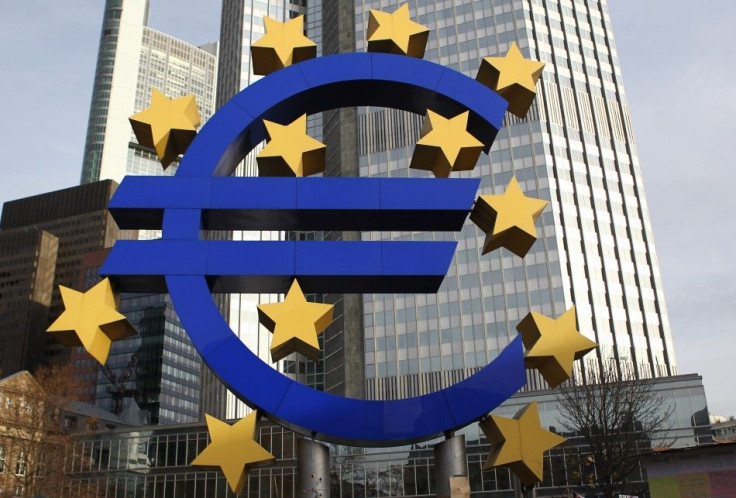European Banks May Be Forced To Sell $3.8 Trillion In Assets: IMF

European banks could be forced to shrink their balance sheets by as much as $3.8 trillion through 2013, or almost 7 percent of total assets, with a quarter of the deleveraging likely to come from cuts in lending and the remainder from sales of securities and noncore assets, the International Monetary Fund said Wednesday.
In its Global Financial Stability Report, the IMF warned that unless policymakers step up their response, European banks' massive deleveraging could slow the region's growth. Credit supply could shrink by 1.7 percent of present credit outstanding. Even under its baseline scenario, the IMF sees banks' combined balance sheets possibly shrinking by as much as $2.6 trillion.
So far, current policies have prevented a 'credit crunch', but if financial stress intensifies a large scale and synchronized deleveraging by European banks could do a serious damage to asset prices, credit supply and economic activity in Europe and beyond, said José Viñals, financial counselor and head of the IMFs Monetary and Capital Markets Department, which produced the report that studied the continent's 58 largest banks.
The global economy suffered a major setback in late 2011 as concerns about financial stability in the euro area came to a head. Market stress spread throughout the currency zone, bond yields soared in peripheral economies, and liquidity evaporated as investors grew increasingly concerned about the risk of a disorderly bank failure or sovereign default.
European banks remain under pressure to strengthen their balance sheets and regain investor confidence. Deleveraging pressures in Europe's banking system risk could create an adverse feedback loop that could have further effects on economic activity, a major reason why Europe's economy is expected to suffer a mild recession this year and barely grow in 2013, the IMF said.
The 17 countries that use the euro currency will still likely see their economy shrink 0.3 percent this year, and expand by only 0.9 percent in 2013, the IMF projected.
European banks have been under pressure to reduce leverage since 2008, and have accomplished this by selling assets, and raising capital while limiting their cuts in lending to companies and households.
The key is to strike the right balance, as banks need to strengthen their balance sheets to increase their resilience over the long run. At the same time, it's essential to avoid large scale reductions in lending that may undermine economic growth and the global recovery.
Some deleveraging is healthy, the IMF said, since high leverage is no longer supported by either markets or regulators.
But like Goldilocks, the amount, pace, and location of deleveraging must be just right -- not too large, too fast or too concentrated in one region or country, said Viñals, adding that much remains to be done to build on the limited breathing room provided by recent policy steps.
The fund praised European leaders for bulking up the bailout fund and taking other important steps to address the crisis. Better policies would prompt a smaller, 6 percent contraction in banks' balance sheets, which would boost euro area growth by 0.6 percent. If, however, European policymakers fail to carry through their reform plans, bank balance sheets could shrink by as much as 10 percent, reducing euro area credit supply by 4.4 percent and gross domestic product by a further 1.4 percent by the end of 2013.
European banks stocks led the market lower. Shares of Deutsche Bank AG (NYSE: DB) fell 1.86 percent, to close at $45.45 a share, in Wednesday trading.Royal Bank of Scotland Group PLC (NYSE: RBS) lost 3.71 percent, to $7.78, while Lloyds Banking Group PLC (NYSE: LYG) fell 2.08 percent.
© Copyright IBTimes 2024. All rights reserved.





















